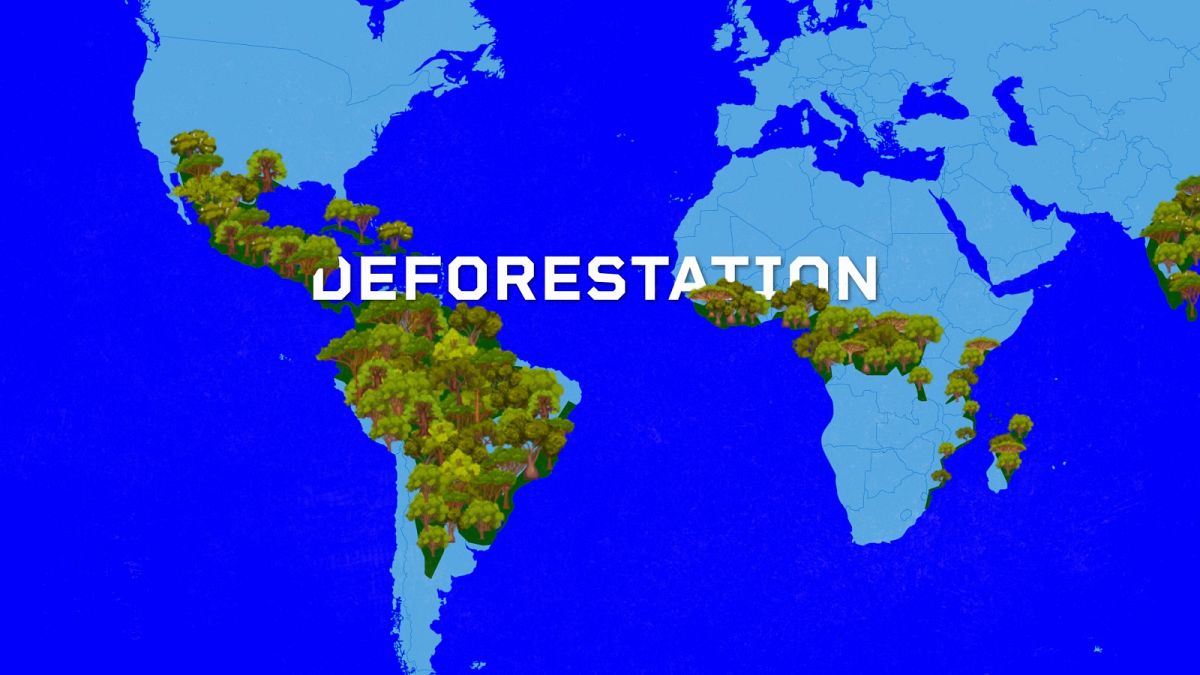Can the goods we buy and the services we use affect the survival of the rainforest? The EU thinks so and this episode explores its new law on deforestation, which is provoking a backlash from companies and countries who are negotiating over how to delay the application of the new rules.
The new law on deforestation, passed in June last year, will require companies to prove that manufacturing processes and supply chains are not responsible for the destruction of forests, especially tropical forests that are essential for the stability of the climate.
Cattle, cocoa, coffee, palm oil, soy, timber, rubber, coal and paper will only be sold on the EU market if they are not linked to land deforested after 2021.
Some EU Member States, third countries from which the bloc imports and part of the business sector have complained about the costs and bureaucratic issues to be implemented in order to carry out monitoring, so the European Commission proposed delaying entry into force, previewed for December 30, for a year.
The governments of the 27 countries accepted, but when the European Parliament ruled on this postponement, in a vote on November 14, a political controversy broke out.
The centre-right European People’s Party sought the opportunity – with the help of other parties further to the right – to pass amendments attempting to dilute the legislation and create a category of “risk-free” countries that would be exempt those from the new controls. This reflected the views of industrial sectors highly critical of the new rules, though some multinationals have called for swift implementation of the law.
Adapting to the new law could make some products more expensive. Some residents of Madrid (Spain) and Budapest (Hungary) interviewed by Euronews seem to be sensitive to this compromise between preserving nature and having to spend more money in stores.
“I understand that for a family with many members it is more difficult to keep these things in mind, but if you can, and as long as it is within your reach, I believe you should do it,” said a Madrid resident. “To save the planet, I would tolerate a little inflation,” said one of those interviewed in Budapest.
EU credibility at risk?
Anna Cavazzini, president of the Committee on the Internal Market and Consumer Protection in the European Parliament, said the law has put the credibility of the EU as a political decision-maker at risk.
“Companies are preparing, citizens too, and suddenly we say we want to weaken the law or postpone it again. Of course, at the beginning of the process we have to adapt, but then we will have a clear supply chain and companies can easily comply with the law,” said Cavazzini, a German Green MEP.
The new version of the law will now have to go through institutional negotiation with the European Commission, the European Council (which represents the Member States) and the European Parliament.
“Some parties, such as the Social Democrats and the Greens, are calling on the European Commission to withdraw its proposal to postpone implementation,” explains Gregoire Lory, who follows this legislative topic for Euronews.
Our consumption in Europe is said to contributing to 10% of global deforestation. But at what pace do we need to move forward to reverse this situation and are we prepared to pay the price?
Find out more details in the video!
Journalist: Isabel Marques da Silva
Production: Pilar Montero López
Video production: Zacharia Vigneron
Graphism: Loredana Dumitru
Editorial coordination: Ana Lázaro Bosch and Jeremy Fleming-Jones

